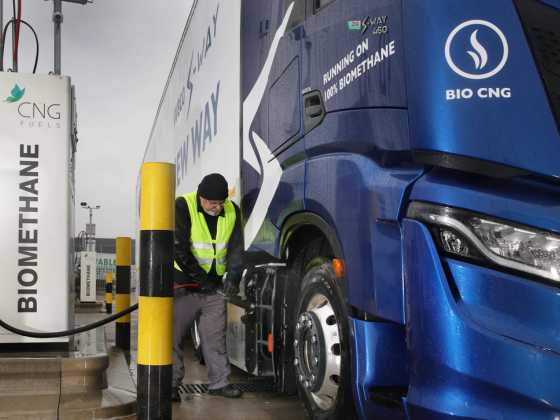Theresa May: We will legislate for net zero emissions by 2050

The Prime Minister has announced that the UK will put in place a legally binding net zero target to end the UK’s contribution to global warming by 2050.
The legislation will be laid in Parliament today, Wednesday 12 June. This will amend the Climate Change Act 2008.
This legislation will mean that the UK is set to become the first G7 country to legislate for net zero emissions, with other major economies expected to follow suit. The UK will conduct a further assessment within five years to confirm that other countries are taking similarly ambitious action.
This action is based on advice from independent experts at the Committee on Climate Change.
Prime Minister Theresa May said: "As the first country to legislate for long-term climate targets, we can be truly proud of our record in tackling climate change. We have made huge progress in growing our economy and the jobs market while slashing emissions.
"Now is the time to go further and faster to safeguard the environment for our children. This country led the world in innovation during the Industrial Revolution, and now we must lead the world to a cleaner, greener form of growth.
"Standing by is not an option. Reaching net zero by 2050 is an ambitious target, but it is crucial that we achieve it to ensure we protect our planet for future generations."
Secretary of State for Business, Energy and Industrial Strategy Greg Clark said: "We want to continue our global leadership and that’s why we are introducing a legally binding net zero target to end the UK’s contribution to global warming entirely by 2050. The report we commissioned from the Committee on Climate Change makes clear that we have laid the foundations to achieve a net zero emissions economy, and that it is necessary and feasible.
"Almost 400,000 people are already employed in the low-carbon sector and its supply chains across the country. Through our modern Industrial Strategy we’re investing in clean growth to ensure we reap the rewards and create two million high quality jobs by 2030."
Measures to reduce emissions include ending the sale of new diesel and petrol cars and vans through the government's world-leading Road to Zero Strategy, and protecting biodiversity and promoting sustainability through the 25 Year Environment Plan.
In response to the announcement, LowCVP's Managing Director Andy Eastlake said: "This is an important moment in terms of our national efforts to tackle climate change and one with international significance. The Climate Change Act has been the foundation of moves to decarbonise the UK economy and this shows that the Government is reaffirming its commitment and further strengthening reduction targets.
"But it's vital that targets are backed by robust, practical and fair policies that can deliver the objectives. Climate change cannot be an optional extra, it must be front and centre when we're developing policies in transport, as well as other key areas of the economy.
"Transport is one of the most challenging areas for decarbonisation and has, so far, proved one of the most intractable. There are real signs of progress - in road transport at least - but much more must be done by Government and all other key stakeholders to ramp up progress and help ensure that the UK is, at least, amongst countries leading the world into a new green, clean industrial revolution.
"Delivering this ambitious new target for a new generation of mobility systems presents big challenges to every player in the transport arena; automotive, energy, government, fleets and, of course, consumers...but together we can - and must - develop, communicate and deliver the plan to get us to Net Zero.”






